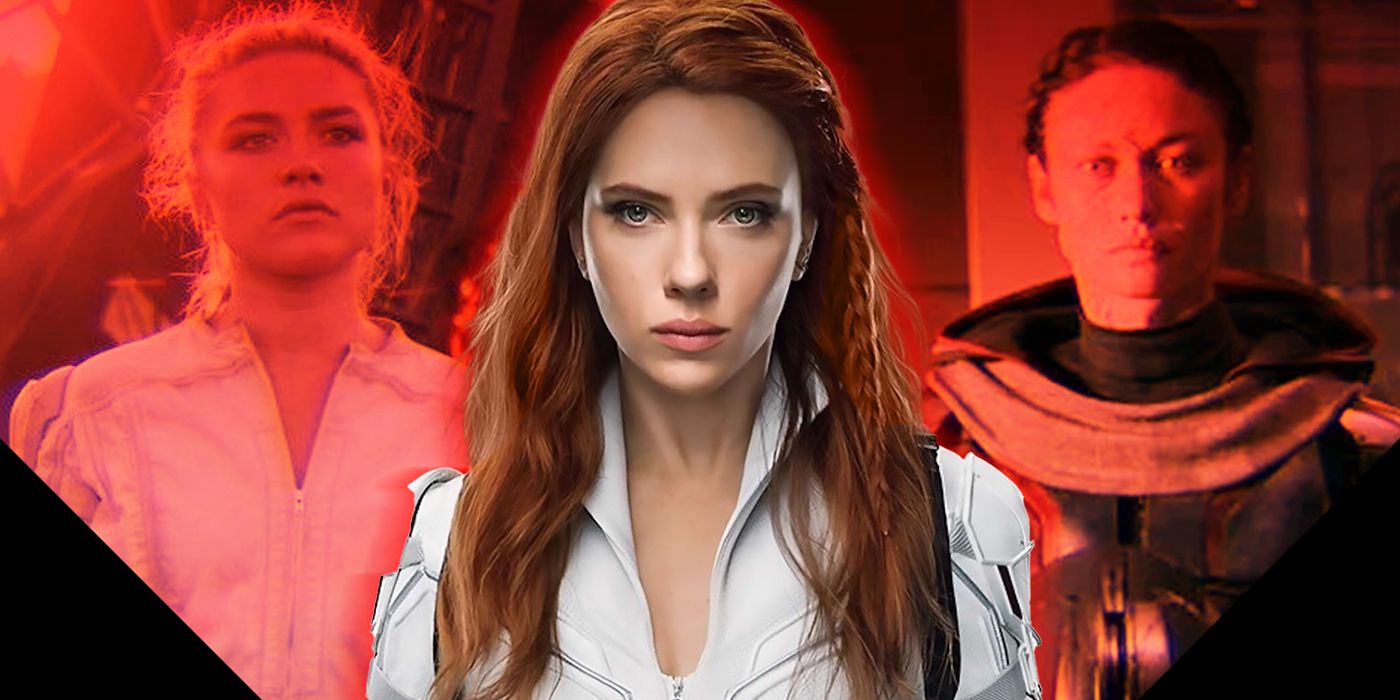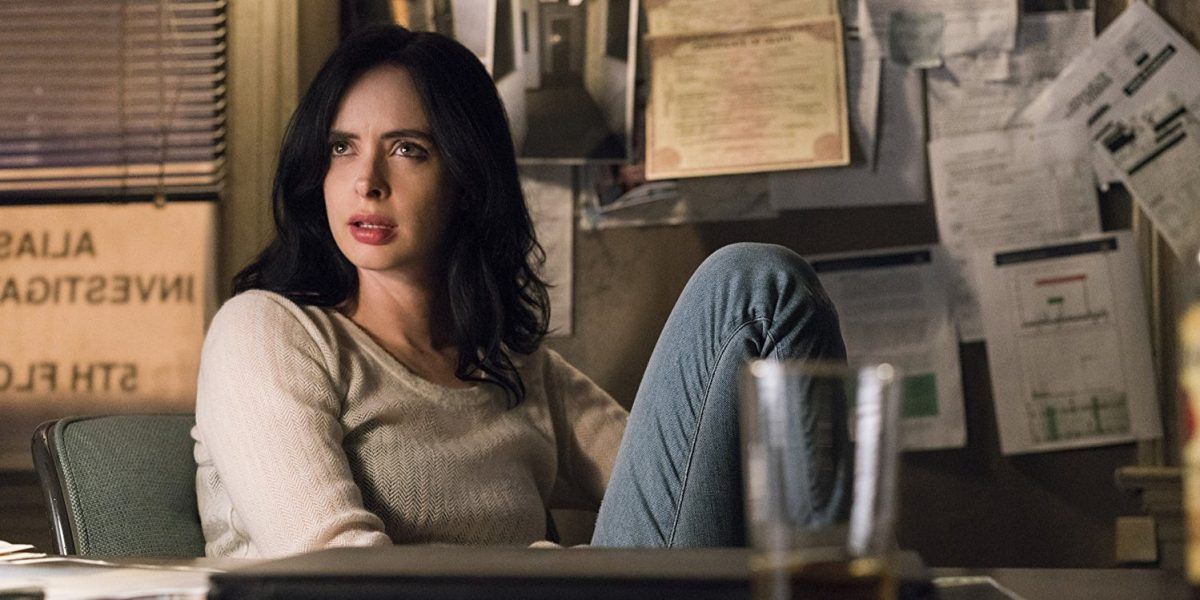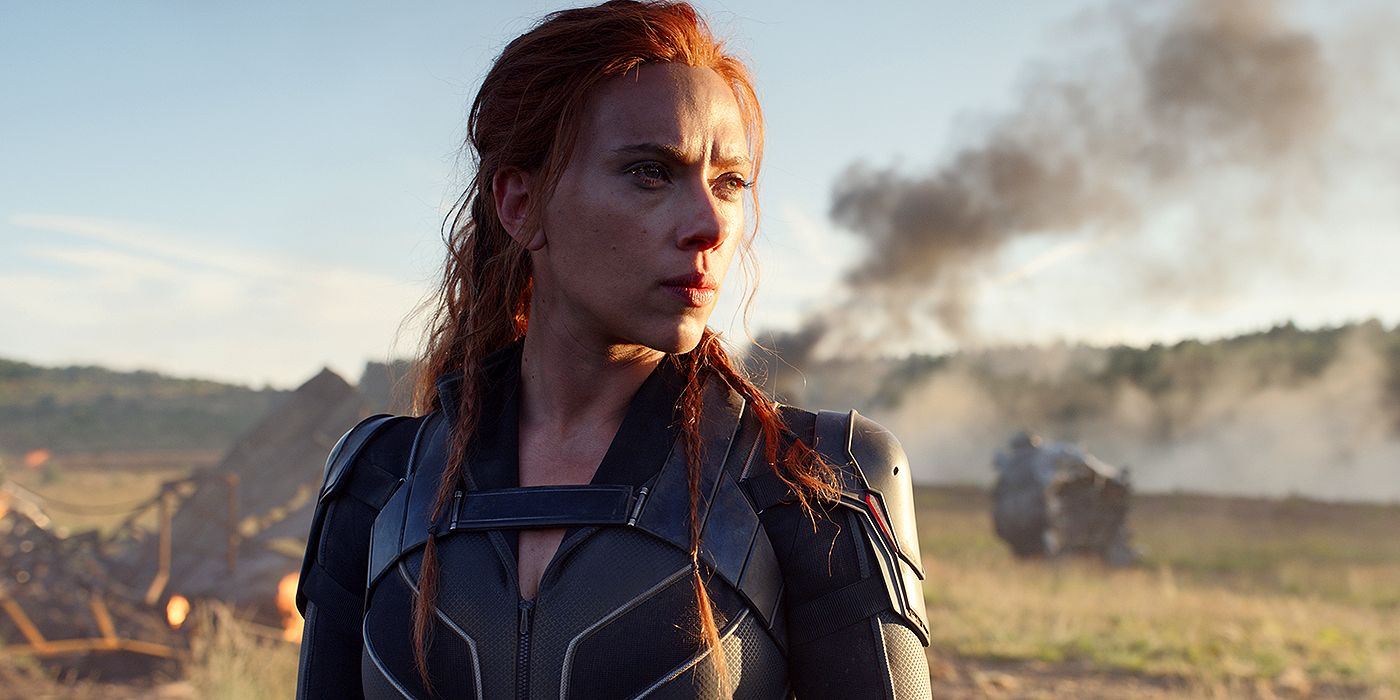WARNING: The following contains spoilers for Black Widow, now in theaters and on Disney+ Premier Access.
Marvel has put out a few solely female-led projects at this point: the now questionably canonical Agent Carter and Jessica Jones, Captain Marvel and now Black Widow. All of these have featured fairly straightforward "girl power" messages, to the point that naysayers (or misogynists) could accuse them of being heavy-handed and even fans might acknowledge that the company approaches things in a rather basic way. There are also understandable complaints that these projects haven't portrayed intersectionality as well as they should.
The fact remains, though, that while those who are educated about feminist issues already know what these TV shows and movies have pointed out (and those who are particularly resistant to those issues will probably complain that they're being forced to endure sociopolitics in their media), there are other viewers, particularly younger people, that are going to watch these and genuinely learn something important about the world. It might make them think about these issues in a new way or for the first time; it might even help them become stronger in their understanding. By putting these very serious issues in an easy-to-understand format, Black Widow makes them more accessible.
It's also worth noting that while all of Marvel's female-led projects have presented pretty simple feminist points, they've featured different feminist points. For instance, Agent Carter and Captain Marvel were both about women trying to make a place for themselves in a "man's" world: Peggy (Hayley Atwell) struggles in the already more sexist 1940s to be respected as a spy, while Carol (Brie Larson) struggles to follow her dreams of flying in the male-dominated military and then gets subjected to the social structures of Kree society, which is mired in sexism, at least in the comics. Peggy and Carol both want to be taken seriously as heroes and people, though the details of their stories, and the feminist points made therein, aren't identical.
In contrast, Jessica Jones started as a story about trauma, specifically female trauma inflicted by men. Jessica (Krysten Ritter) goes up against Kilgrave (David Tennant), who raped, manipulated and abused her; Hope (Erin Moriarty) was also caught in Kilgrave's web; Trish (Rachael Taylor) was abused directly by her mother, Dorothy (Rebecca De Mornay), who was influenced by a misogynistic culture and facilitated Trish's being used by men. It's all about overcoming and reclaiming -- and reacting to other people's responses.
Black Widow comes closer to the themes in Jessica Jones, but it takes them a step farther. In addition to reacting to and healing from trauma, Natasha (Scarlett Johansson), Yelena (Florence Pugh) and the other Widows have to deal with a systematic culture of abuse, lies and disposability. When they're introduced in the film, they're children under the care of Melina (Rachel Weisz) and Alexei (David Harbour); Natasha seems to have some memories of the Red Room, but Yelena is young enough that this fake family is all that she knows. They've lived a lie, and the only reason for it is that Melina and Alexei look more like good, wholesome Americans if they have a proper family. Thus, the girls are essentially props.
When they're called back to the Red Room and returned to a group of young Widows, Dreykov specifically orders soldiers to cull the weaker girls. Natasha's Avengers: Age of Ultron flashbacks mention that only the strong girls survive; Yelena later mentions that many girls didn't make it through Widow training. Dreykov even describes young girls as "the only natural resource the world has too much of." Throughout Black Widow, Natasha has to cope with the aftereffects of painful, dehumanizing social conditioning; Yelena and her generation of Widows are subject to literal brainwashing, which only furthers the dehumanization.
Yelena even says, when she's describing the brainwashing to Natasha, that it turns the Widows into "things." She explicitly says that the Red Room's treatment objectifies them, which is only furthered by Melina's later explanations of how the brainwashing works and Dreykov's claims about the Widows he's created. Natasha freed herself from the Red Room and made a new life, one of her own choosing, but the past still haunts her; Yelena has just achieved independence and is reveling in her freedom, bragging about the vest she picked out for herself, but she's vocal about the ways that being brainwashed and objectified has hurt her.
There's also Antonia (Olga Kurylenko), Dreykov's daughter. Natasha thinks she killed Antonia when she did away with the Red Room, but instead she wounded the young girl and paved the way for Dreykov to turn his daughter into a chipped, super-suited, robotic fighter. Antonia is even more literally objectified, and freeing her from that is a key part of Natasha's arc.
In fact, it's all strikingly similar to the themes in 2015's Mad Max: Fury Road. That film is more about women being treated as disposable sex objects, while Black Widow is about women being treated as disposable action dolls, who might also be sex objects if it's necessary, but both films are about women seeking freedom and redemption from a broken, sexist system that treats them horribly. "We are not things," Fury Road's women say, and Natasha and Yelena fight directly against the Red Room and how it makes them and other women into things. They may not be subtle points, but they're powerful, and in a world that still struggles with misogyny and objectification, it's very necessary to discuss and think about these issues.
Directed by Cate Shortland, Black Widow is playing in theaters and on Disney+ Premier Access.



